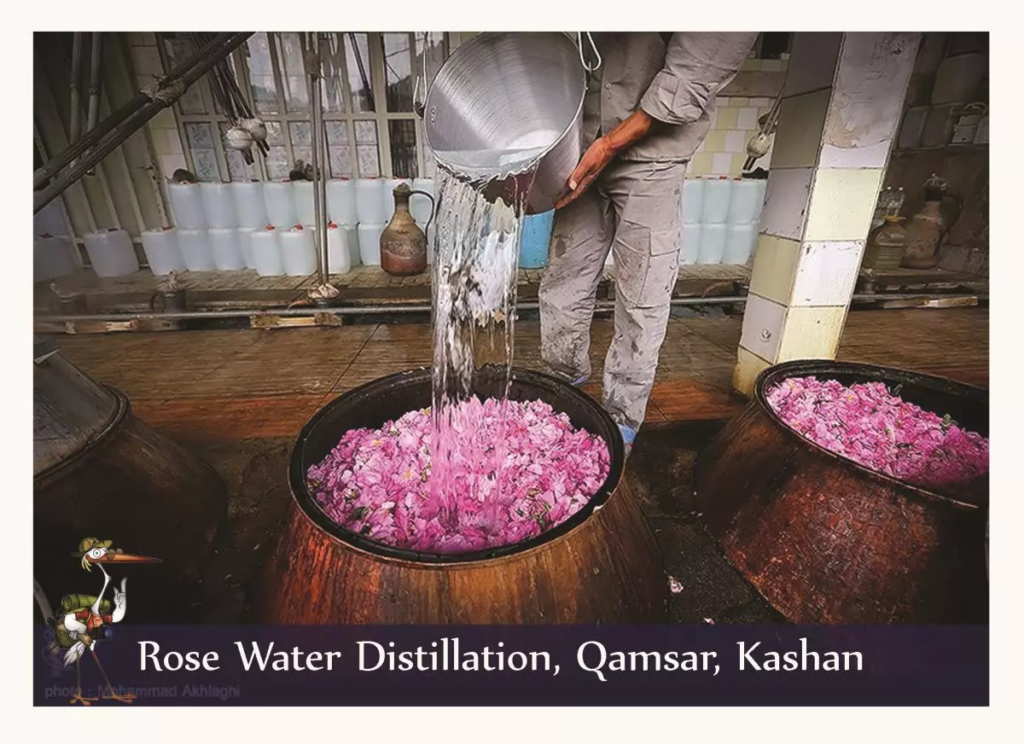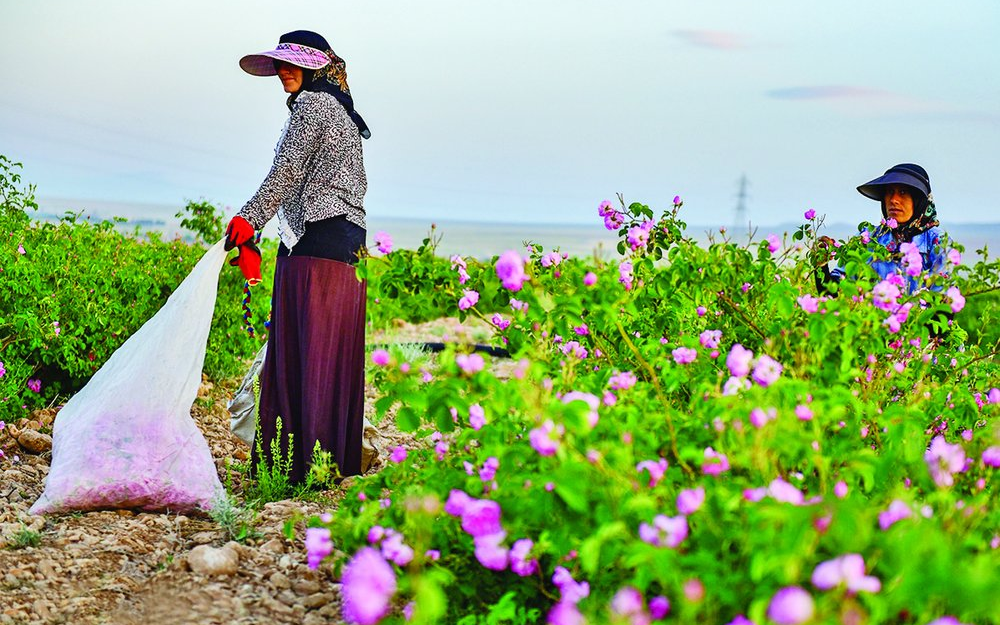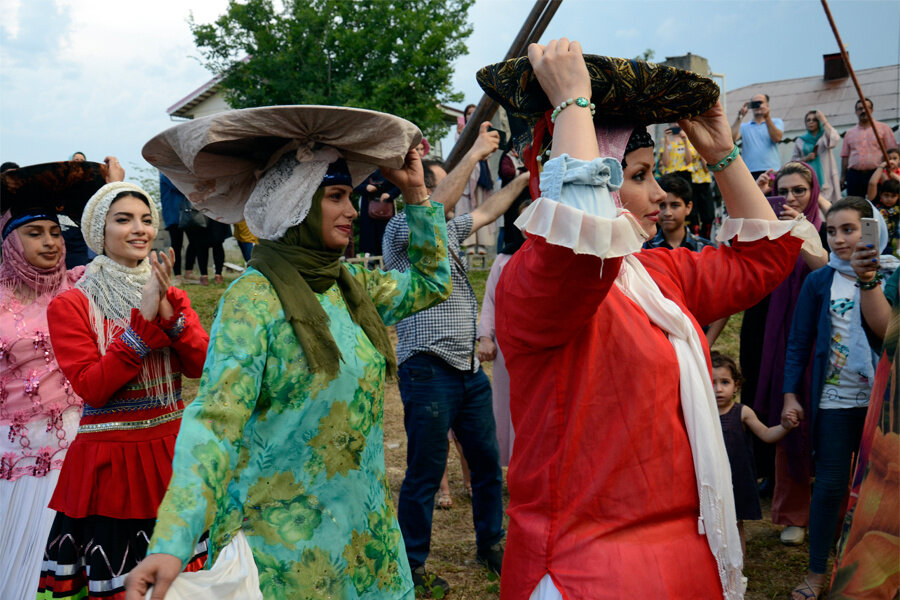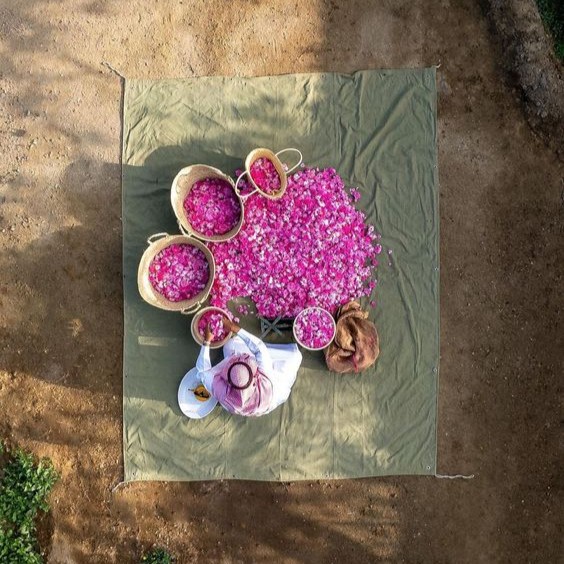Mornings begin with my skincare essentials, which include rose water. A staple which has been I have used since childhood for anything from injuries to skincare. I began making rose water, a soothing and floral process. Rose water calms skin, fights inflammation, and hydrates, aiding anti-ageing and soothing irritation. Its antioxidants refresh tired eyes, while its aroma reduces stress. Internally, it aids digestion and soothes sore throats, promoting overall well-being as a versatile natural remedy.
Kashan is a city in the Isfahan province of Iran, where the Rose and Rose Water Festival unfolds each spring. This celebration honours the essence of Damask roses, transforming the city into a fragrant paradise. Artisans, enthusiasts, and visitors flock to witness this age-old tradition, deeply rooted in cultural heritage.

Golabgiri, an Iranian tradition, involves handpicking Damask roses at dawn, distilling their essence in copper stills to produce Golab, prized rose water. This ceremonial process, central to Iran’s Rose and Rose Water Festival, symbolizes cultural heritage and unity while celebrating the fragrance of Damask roses. This event captures the essence of floral beauty, drawing in crowds from far and wide.
Taking place annually from mid-May to mid-June, a celebration of cultural heritage and craftsmanship, the festival showcases the art of rose water making, a practice steeped in tradition. The delicate plucking of roses at dawn marks the commencement of the ceremonial distillation process. Traditional copper stills take centre stage, transforming petals into aromatic elixir through meticulous distillation.
Symbolic use of rose water in weddings, spiritual rituals, and cultural practices infuses the elixir with significance, symbolizing purity, blessings, and unity. Artisans exhibit their craft, creating fragrances and perfumes from the essence of Damask roses.

Among the festival’s highlights is Golabgiri, the ritualistic process of rose water production. Skilled hands harvest the delicate blooms at dawn, preserving their essence for distillation. Traditional copper stills, carefully tended to, distil the fragrance and essence of the roses, culminating in the prized Golab.
The celebrations honour the harvest, emphasizing natural farming methods and pesticide-free cultivation. The festivals educate attendees on eco-friendly techniques, promoting biodiversity preservation and environmental consciousness. They serve as cultural hubs, uniting communities in reverence for nature’s beauty and the interconnectedness between humans and the environment. These events symbolize the harmonious relationship between tradition, agriculture, and responsible environmental stewardship.
Preserving this cultural legacy is crucial. Efforts towards sustainable farming practices and technological advancements aim to ensure the continuation of this fragrant tradition. The festival bridges tradition with modernity, highlighting the importance of preserving ancestral practices in an evolving world.

As the festival concludes, visitors depart with cherished memories and a deeper connection to Iran’s cultural richness. The Rose and Rose Water Festival is more than an event—it’s a reminder of the intricate link between nature, tradition, and human celebration. It encapsulates a fragrant tapestry that unites communities and transcends boundaries.
In the quietude of Kashan’s rose gardens, the lingering fragrance carries tales of tradition and celebrates the enduring beauty of the Damask rose—a treasure ingrained in the collective memory of all who embrace this festival in Iran.
Countries such as Pakistan, Türkiye, Morroco and Belgaria also partake in Rose Water festivities and have their own similar traditions in their regions.
Featured Image: MEHSARphotos

